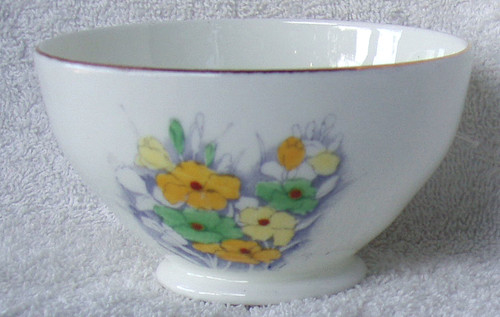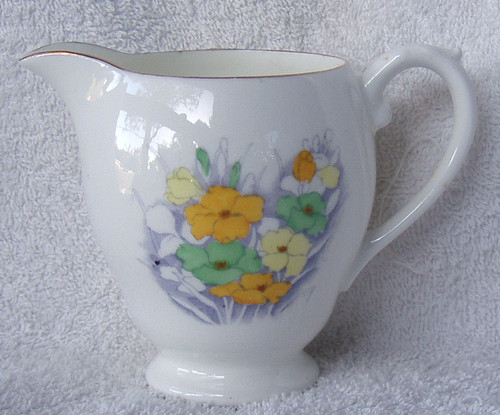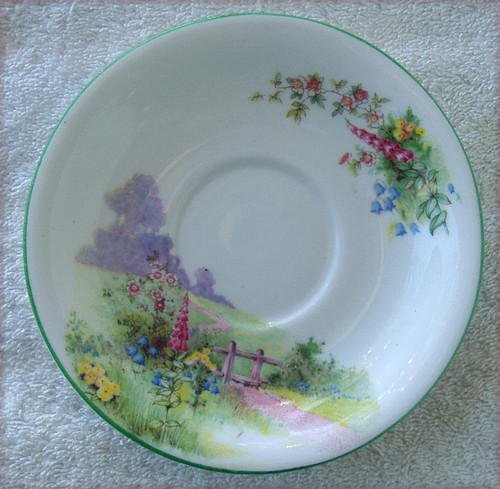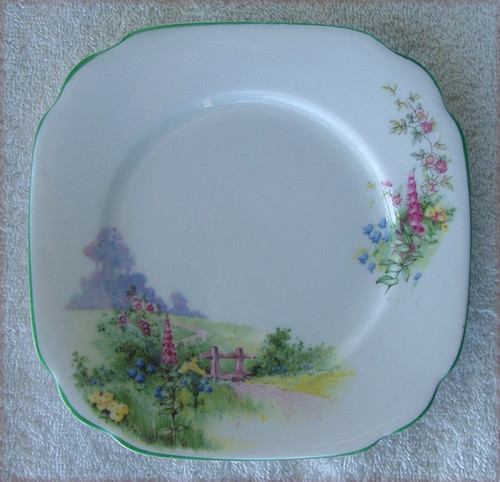Bell China was the trade name used by Shore & Coggins Ltd, England
The backstamp indicates the period this piece came from was somewhere between 1936 & 1966 although I feel the late 1930's would be more accurate for these pieces based on the hand painted decoration, art deco style of colouring and teaset pieces design (teacup handle shape in particular)
I have more pieces from our "Wallflowers" teaset, take a look HERE if interested
BELL CHINA - Teacup (1) ONLY
Fine Bone China Teacup
Design/pattern: Wallflower
Period 1936 ~ 1966 (based on the backstamp design)
Translucent fine china, meaning that when it is held to the light you can easily see the shadow of your hand through the chinaware
Hand painted
Bold colouring of English garden flowers with foliage
Top lip and the handle are both gold gilded
BACKSTAMP DETAILS:
Light Grey colouring is used for the backstamp
FINE
BONE
BELL CHINA (Handwritten style, logo used by Bell China)
MADE IN
ENGLAND (Underlined with two lines)
"WALLFLOWER"
Artists mark just below the backstamp, 4241
DIMENSIONS:
Teacup: 84mm diameter 'mouth' x 70mm height
Weight: 100g
CONDITION:
I have two teacups, the following describes BOTH teacups, followed by individual assessments
Good condition
NO cracks
NO fleabites
NO crazing
CUP A:
Wear to the gold gilding is minimal, if I was to rate the quality of the gilding it would be 9/10 which is pretty outstanding for a teacup, particularly the handle which gets a lot of wear during normal use.
However there is obvious tannin staining from the hot tea which has been inside the cup (base) from previous useage, quite noticeable but not terrible
CUP B:
Wear once again is minimal although I would rate the quality of this teacup slightly lower, 7/10 as I can see more wear to the gilding than Cup A
While the inside of the teacup is 'stain free' from tannin, these little brown dots show up again! My description of the creamer jug covers these and the little brown spots can be found inside the teacup (wall) with just a couple of little, light coloured brown 'dots' near the top rim. Again I can only think that the glaze has failed in some way, although there are no visible signs of crazing (wet or dry tests)
I also noticed what appears to be a tiny little chip in the china, where the top of the handle meets the teacup body. No cracking but I can feel a very small section of china which seems to be a tiny chip.
First buyer will be supplied CUP A but if the two cups are purchased, a discount is automatically applied due to the lesser quality of CUP B
















